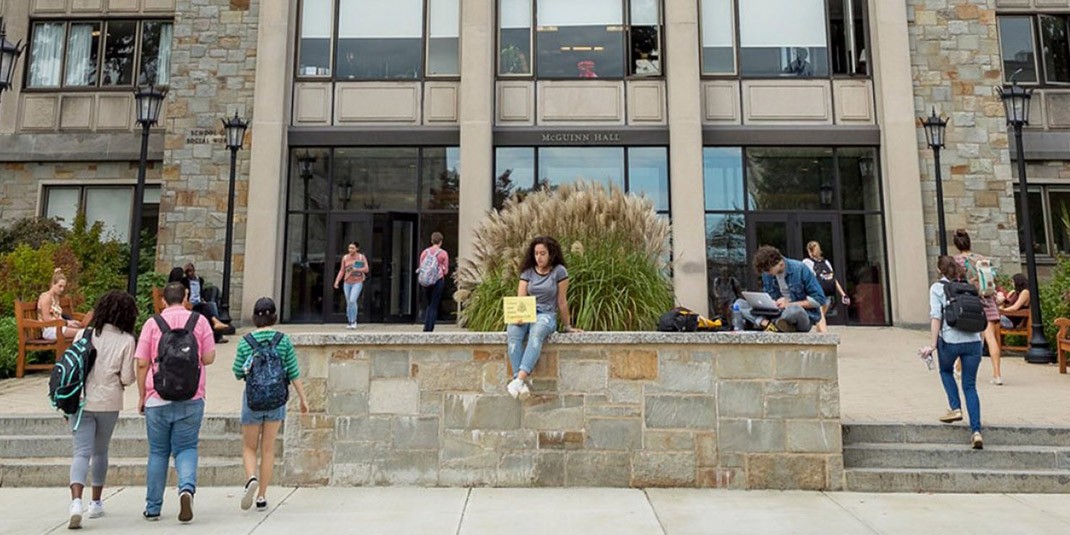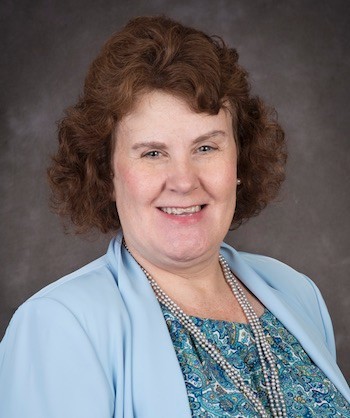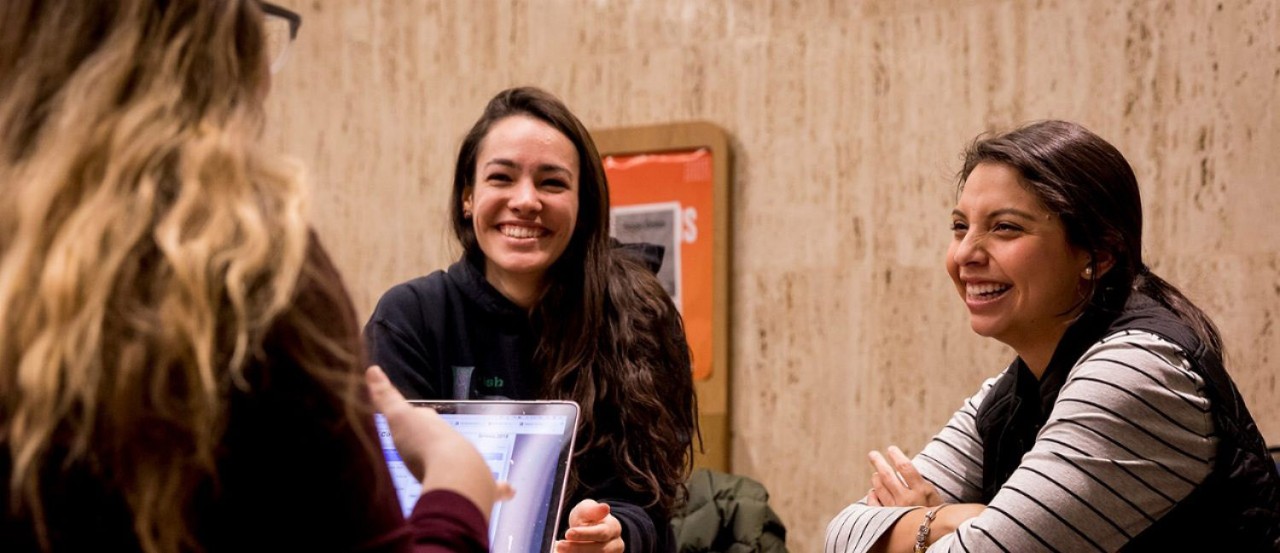
Students go to and from McGuinn Hall, home of the Boston College School of Social Work.
The part-time MSW program in the Boston College School of Social Work offers students the rigorous curriculum and valuable field experience of the full-time program in a flexible format that accommodates their busy schedules.
The program is designed with the working professional in mind, allowing students to earn their MSW in three or four years. One of the biggest perks? Many students can complete their field education at their current agency.
We asked Susan Coleman, assistant dean of field education, to discuss the benefits of the part-time program, the ins and outs of the three- and four-year options, and how field education fits into the curriculum.

Susan Coleman, assistant dean of field education.
What are the biggest perks of BCSSW’s part-time MSW program?
For those working in human services settings, the part-time program provides classroom learning that supports your work experience. Classes meet once per week and run between 8 a.m. and 9 p.m. to accommodate your schedule. The opportunity to use your current job as a practicum opens the door for working people to continue to earn a living while pursuing an MSW—it is a game-changer.
How does the three-year option differ from the four-year option?
Year 1 in the three-year option is arranged as two classes for two semesters; year 2 has two classes each semester, with two semesters of Field running with those practice classes. Year 3 is in essence a full-time schedule.
The four-year plan divides Year 3 into two, with classes and Field done concurrently one year and only classes in the final year. The Field practica are typically scheduled in years 2 and 3, with the practice courses organized around the internship to provide an integrated learning experience.
Like full-time students, part-time students can tailor their degrees to meet their career goals. What choices will incoming students have to ensure that their education aligns with their professional ambitions?
All students are able to choose their course of study (macro or clinical); one of six fields of practice, which requires both a practice and policy course in advanced practice; and two yearlong practicum experiences where coursework and experiential learning combine to support a well-rounded practitioner.
Students can take five electives, which are the best way to customize their curriculum plan, to deepen their knowledge, or to venture into an area of practice that is new and fascinating.

Students chat in the Social Work Library.
Many working professionals who enroll in the part-time program will be allowed to complete their field education where they are employed. How does that work?
Students who are employed in a human services setting are able to design a learning experience that meets the school’s requirements while they continue to work. The Field Ed team will consult with you and your administration to organize the practicum experience that aligns with the social work perspective and build skills and competencies needed as a master’s level practitioner.
This consultation results in a written proposal and signed agreement for the “Placement at Employing Agency.”
The average age of MSW students in the three/four year program is 29. One-quarter of students identify as African-American, Latinx, Asian, or Native American. And everyone is guaranteed to receive a scholarship. What words or phrases would you use to describe the community that prospective part-time students would be joining?
The part-time student cohort at BCSSW brings a wide range of lived and work experiences to the classroom. They often have similar responsibilities outside of school, such as family needs, that help them build a bond of mutual support and understanding. Their work, whether they come from the human services sector or are changing careers, allows them to share and use this learning experience with depth, maturity, and focus. They are a welcome addition to the student cohort and elevate the experience for their classmates, professors, and Field supervisors.

